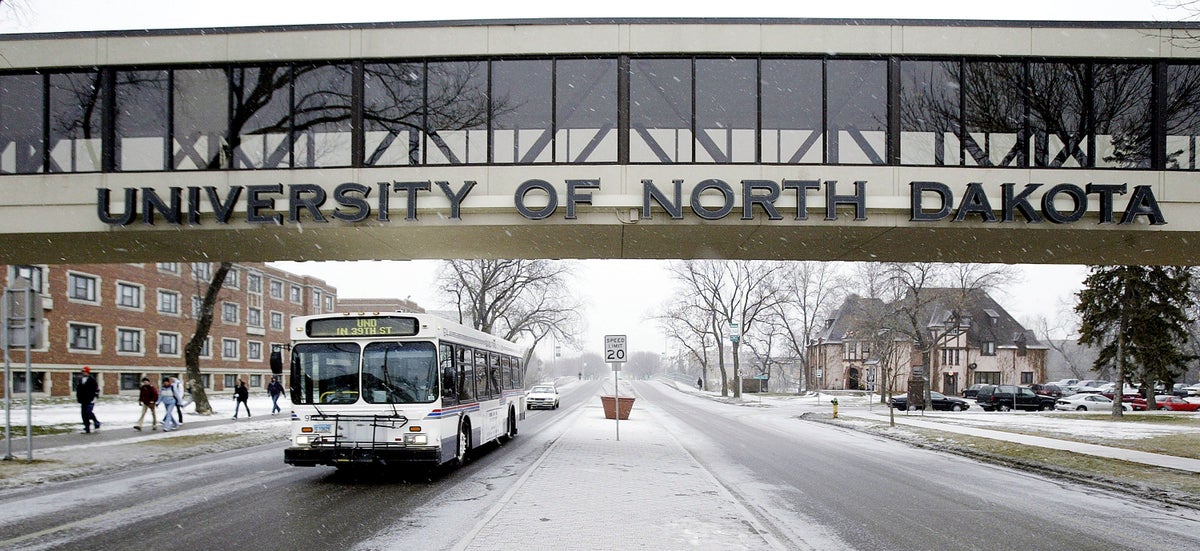
The University of North Dakota announced on Wednesday that it, for decades, failed to report its possession of Indigenous skeletal remains and sacred artifacts to a federal committee as required by federal law.
Officials at the university discovered more than 250 boxes of remains and artifacts dating back to the 1940s in the basement of an old anthropology building earlier this year. Under the terms of the Native American Graves Protection and Repatriation Act (NAGPRA) passed in 1990, the university was responsible for alerting the government of these remains’s existence.
“The university had a responsibility to return ancestors and sacred objects to their tribal lands. Although this effort inexplicably fell short at UND, we are fully committed to righting this wrong,” university president Andrew Armacost said in a statement.
The boxes, which reportedly included ceremonial headdresses and war bonnets, had artifacts from as late as the 1980s. The university has hired an NAGPRA consultant to help start the process of identifying the remains and objects and their respective tribal affiliations, and are working with a number of tribes to protect the physical and spiritual integrity of the remains and artifacts and repatriate them in the months ahead.
Native News Online reported that a group of faculty members searching for a missing sacred object found the boxes in the basement of the “derelict anthropology building” in March, after which they immediately reported the presence of the boxes to university officials and began asking questions about how human remains and sacred objects could be treated so carelessly.
“It begs the questions: How did this happen? Who did this? Why did they do this? All questions we are seeking to know and looking to answer,” professor and enrolled member of the Turtle Mountain Band of Chippewa Indians Lanie Lyons said.
Ms Lyons is now serving on the university’s new NAGPRA compliance committee, which will aim to ensure that there is never a repeat of this incident.
The University of North Dakota, located in Grand Forks in the northeast part of the state, sits on the ancestral land of the Pembina and Red Lake Bands of Ojibwe and the Dakota Oyate.
North Dakota and neighbouring Minnesota both have substantial populations of Indigenous peoples today, including the Red Lake, Turtle Mountain, White Earth Bands, and the Dakota Tribes of both states.
“Our primary goal now is to work diligently until all ancestors and sacred objects are returned home, regardless of how long it takes,” Mr Armacost said in his statement. “Upon learning of this discovery, we reached out immediately to representatives from a half-dozen tribal nations. That number has now grown to thirteen and will continue to expand.”







